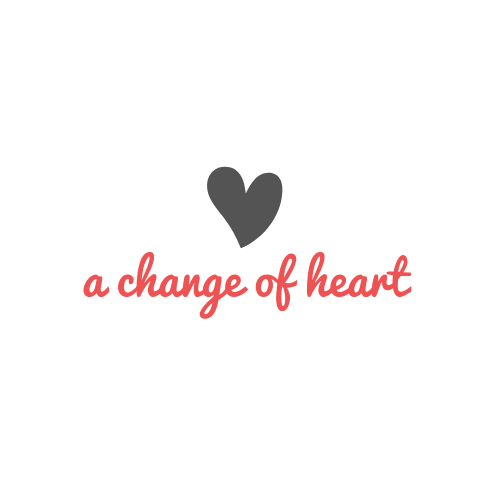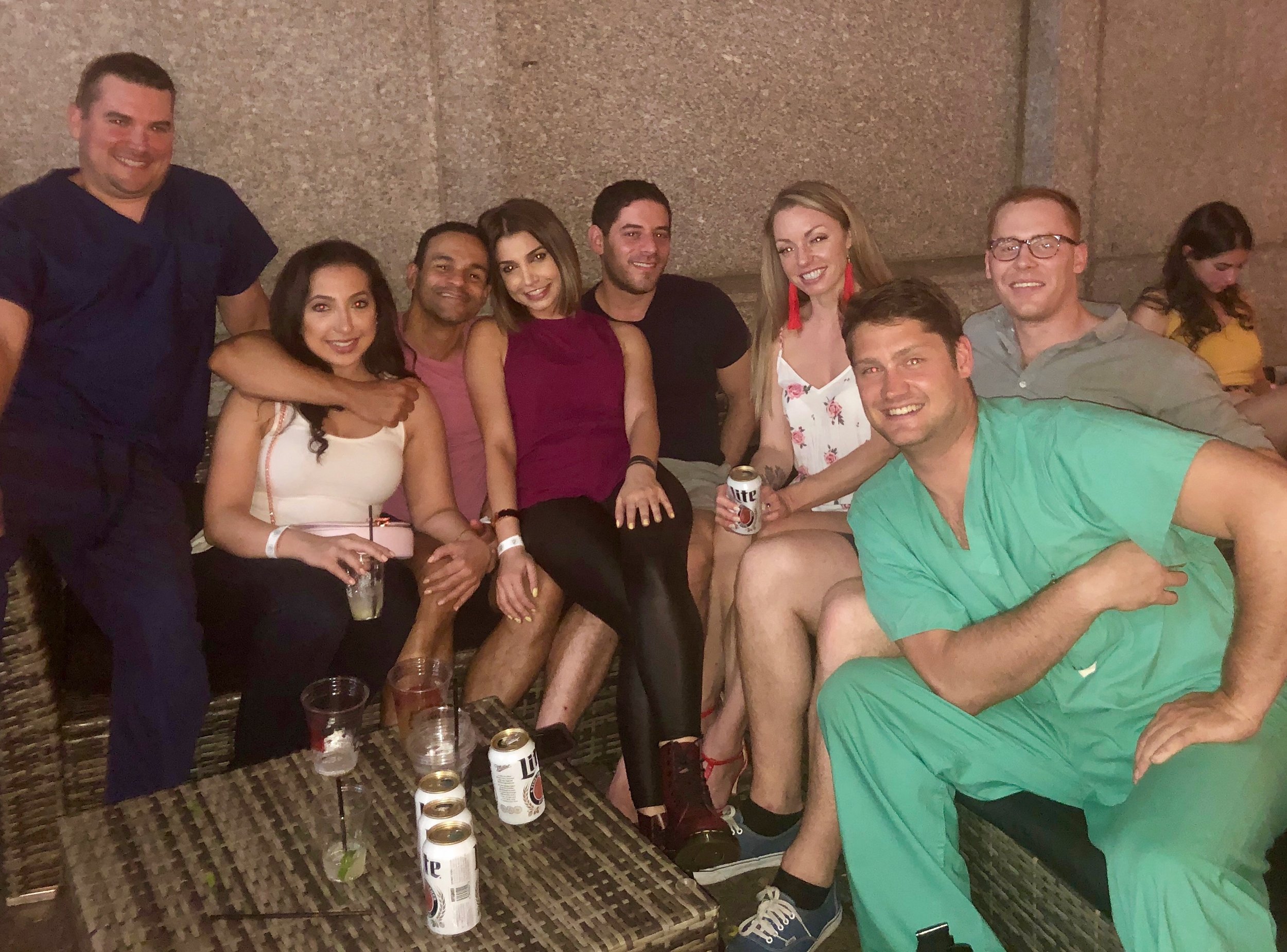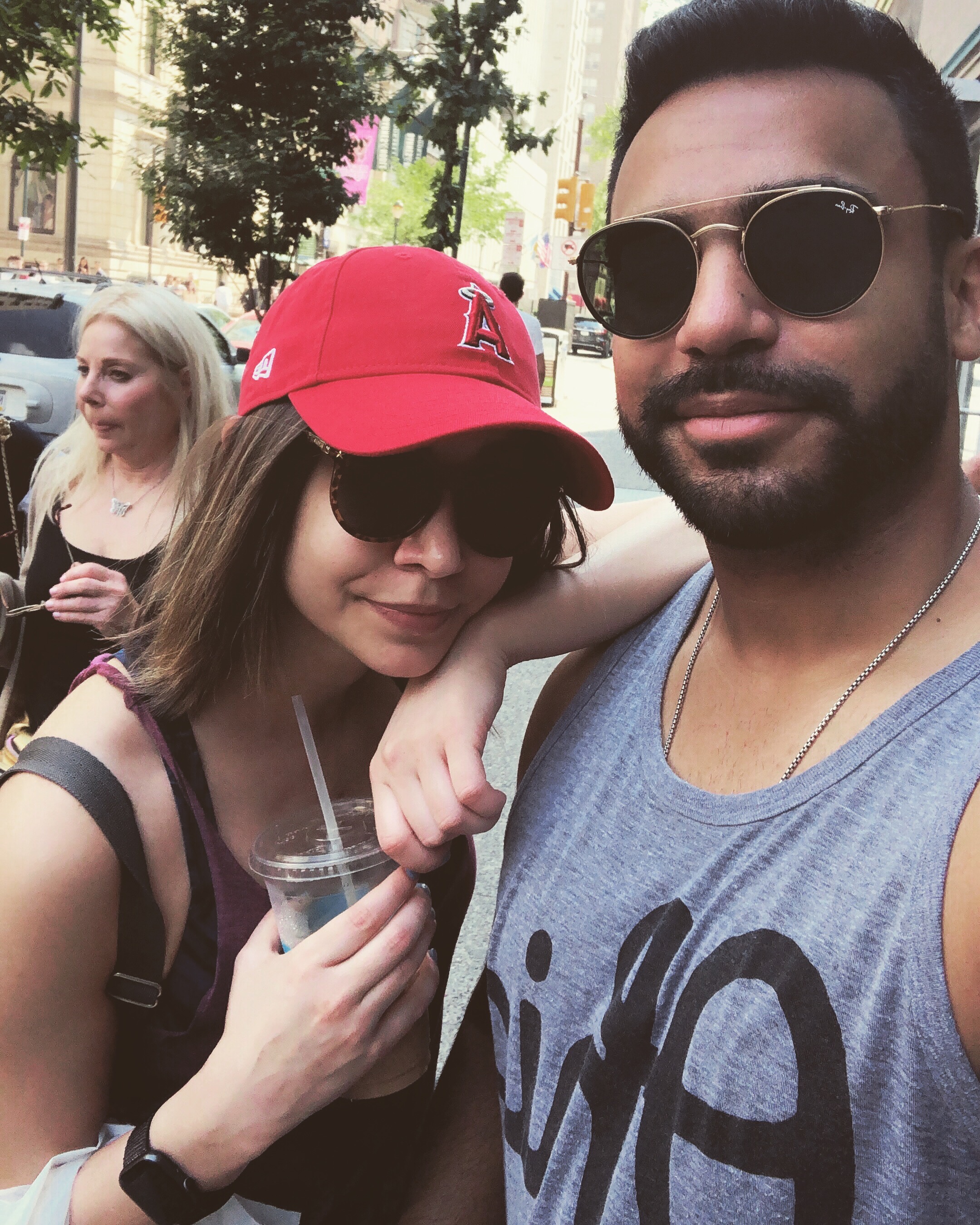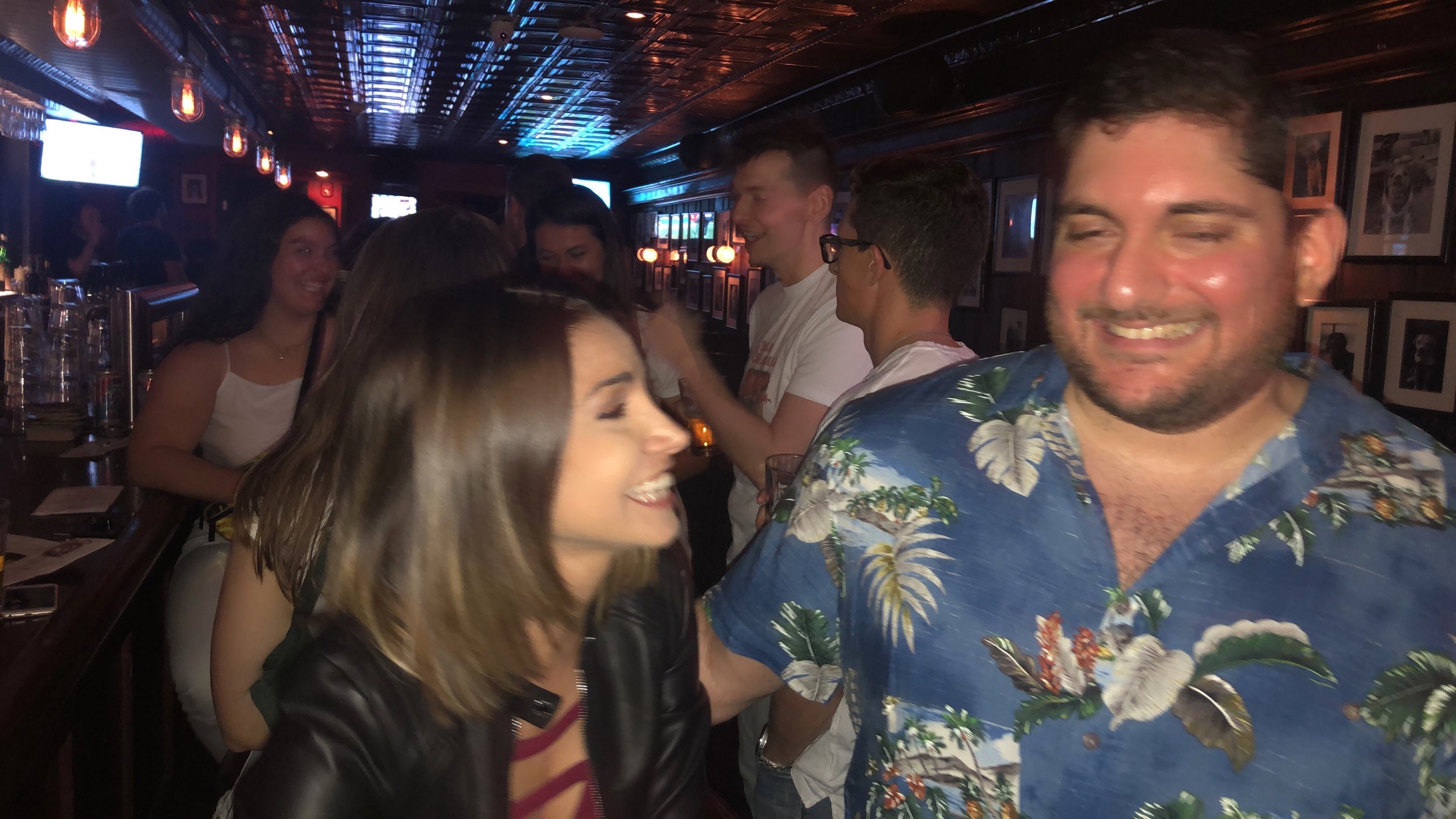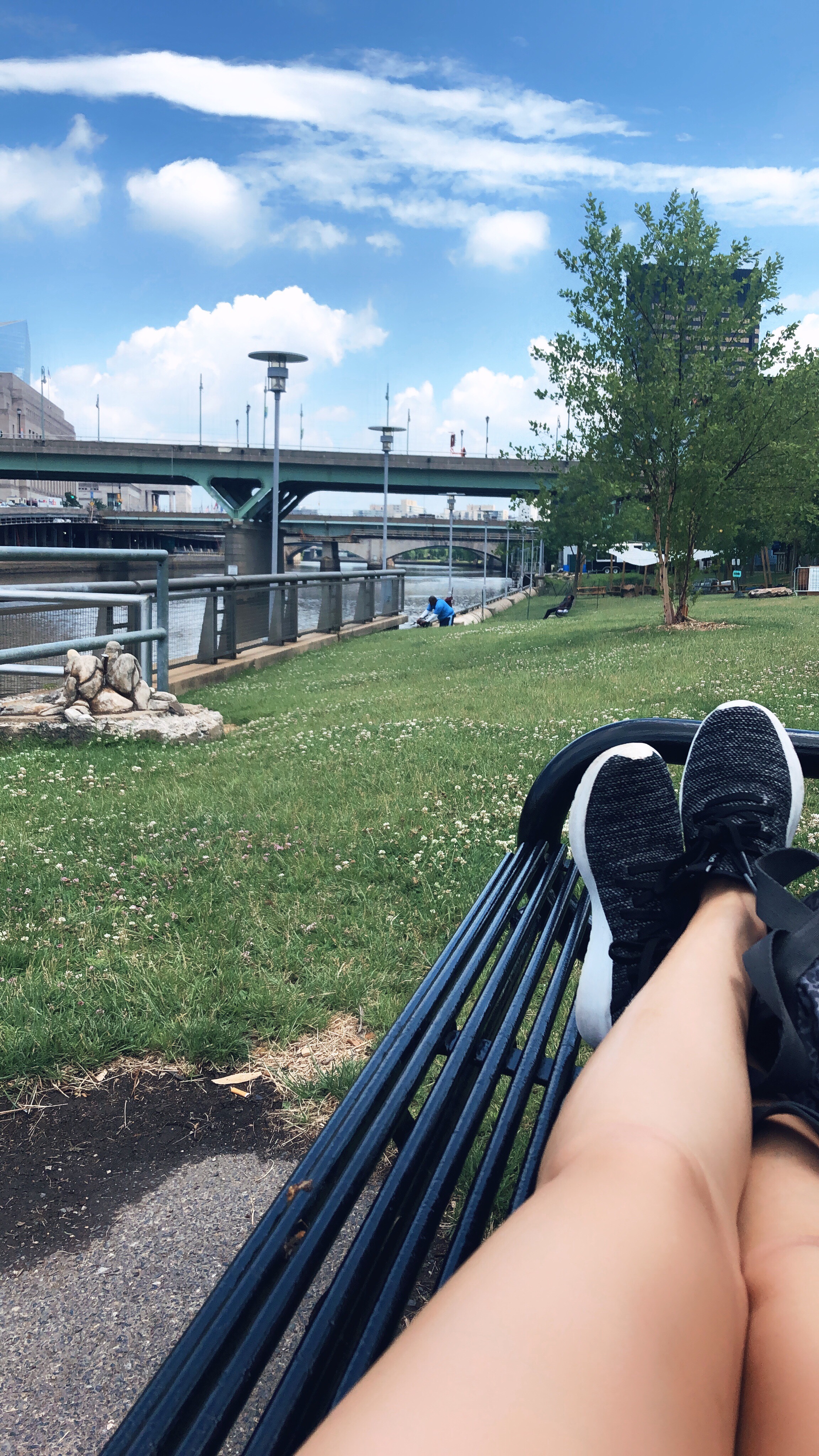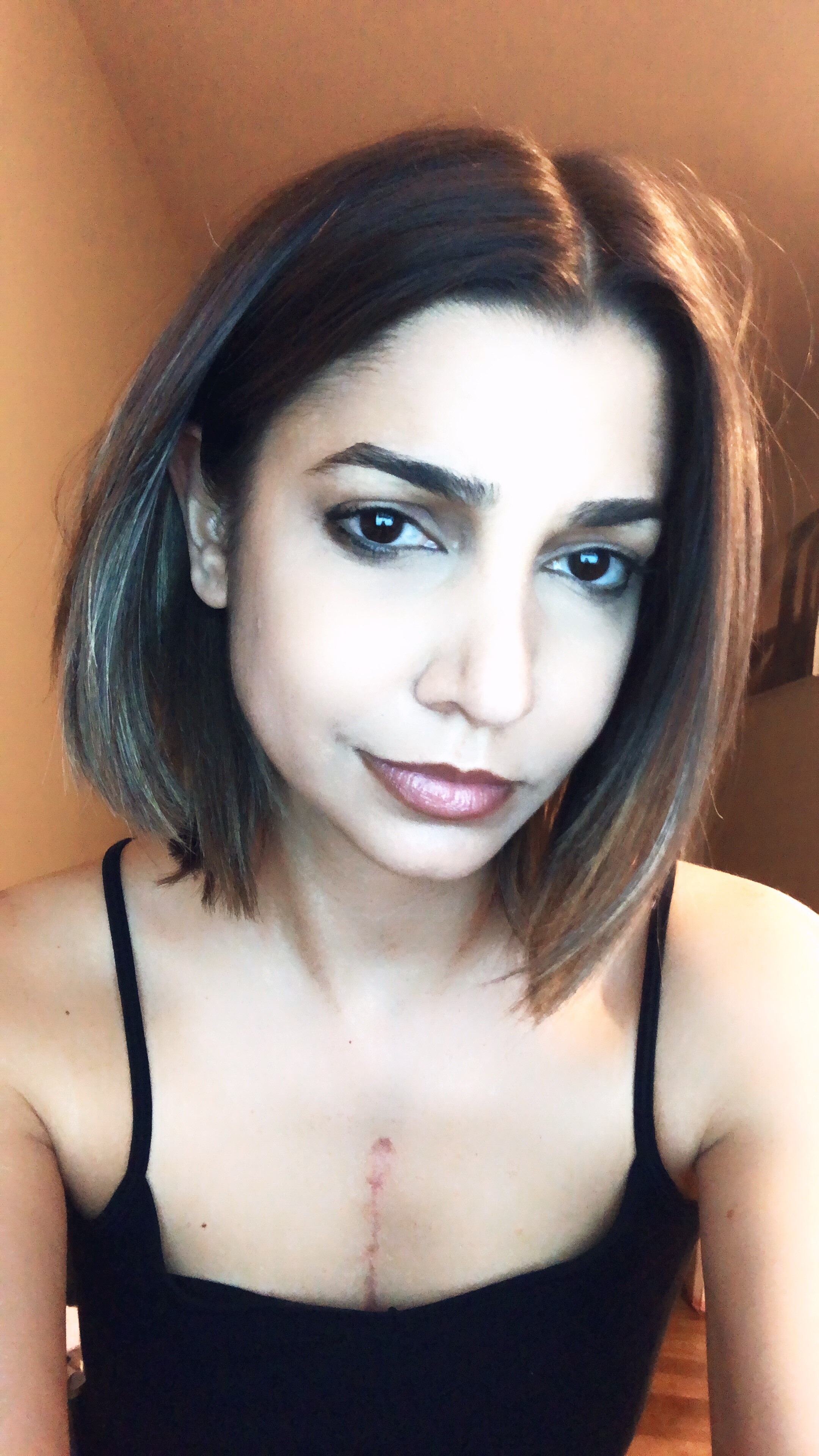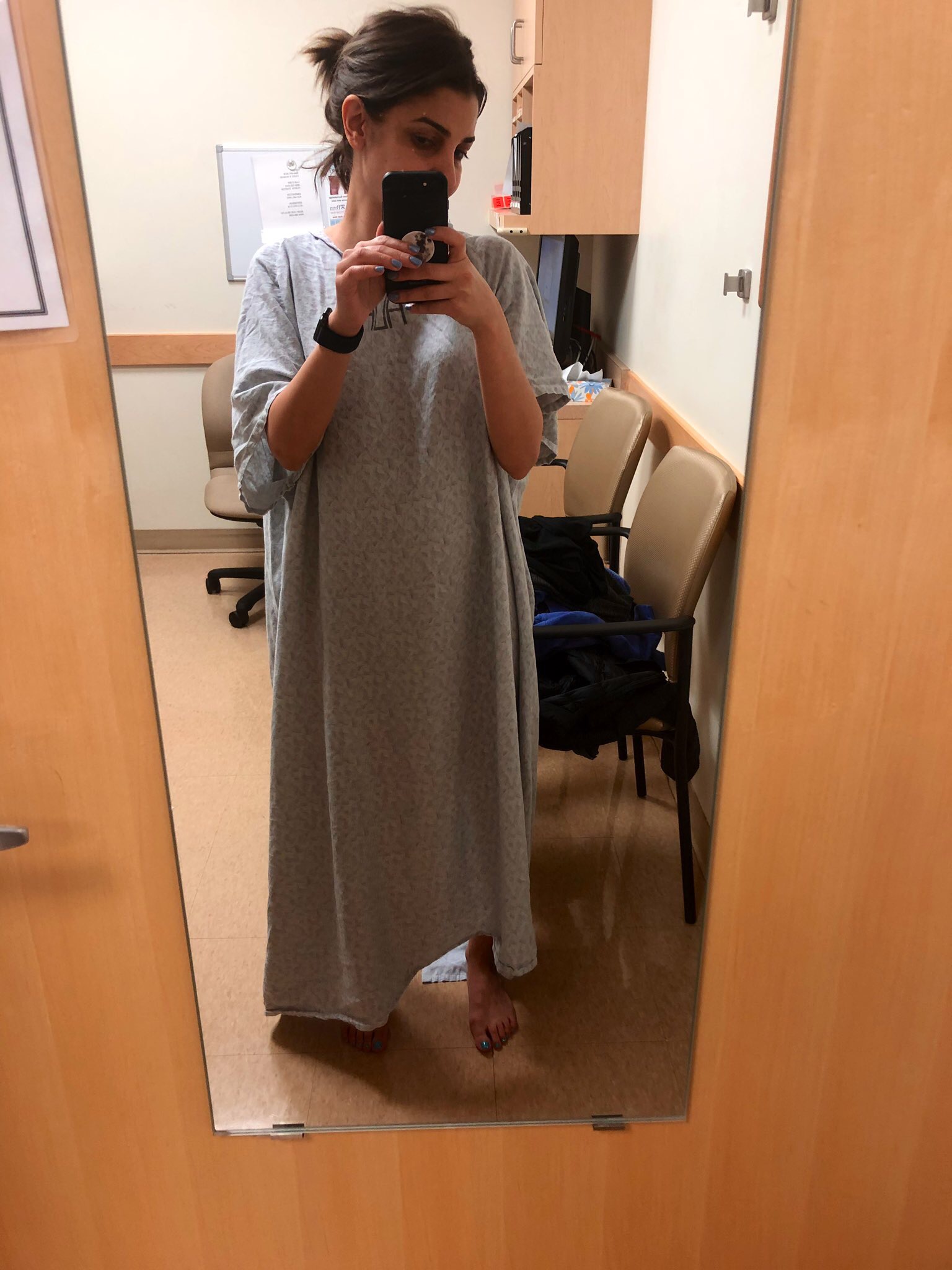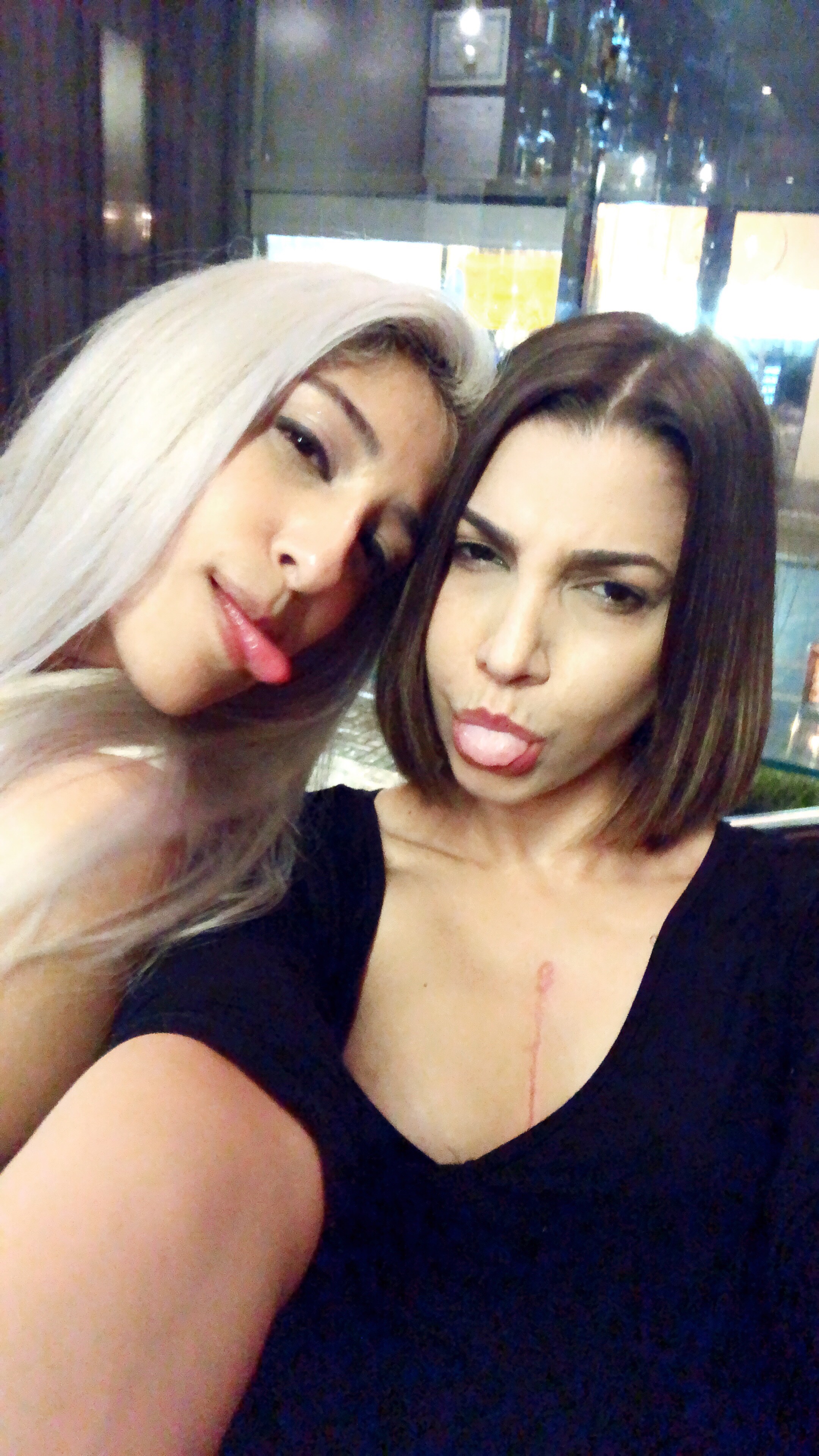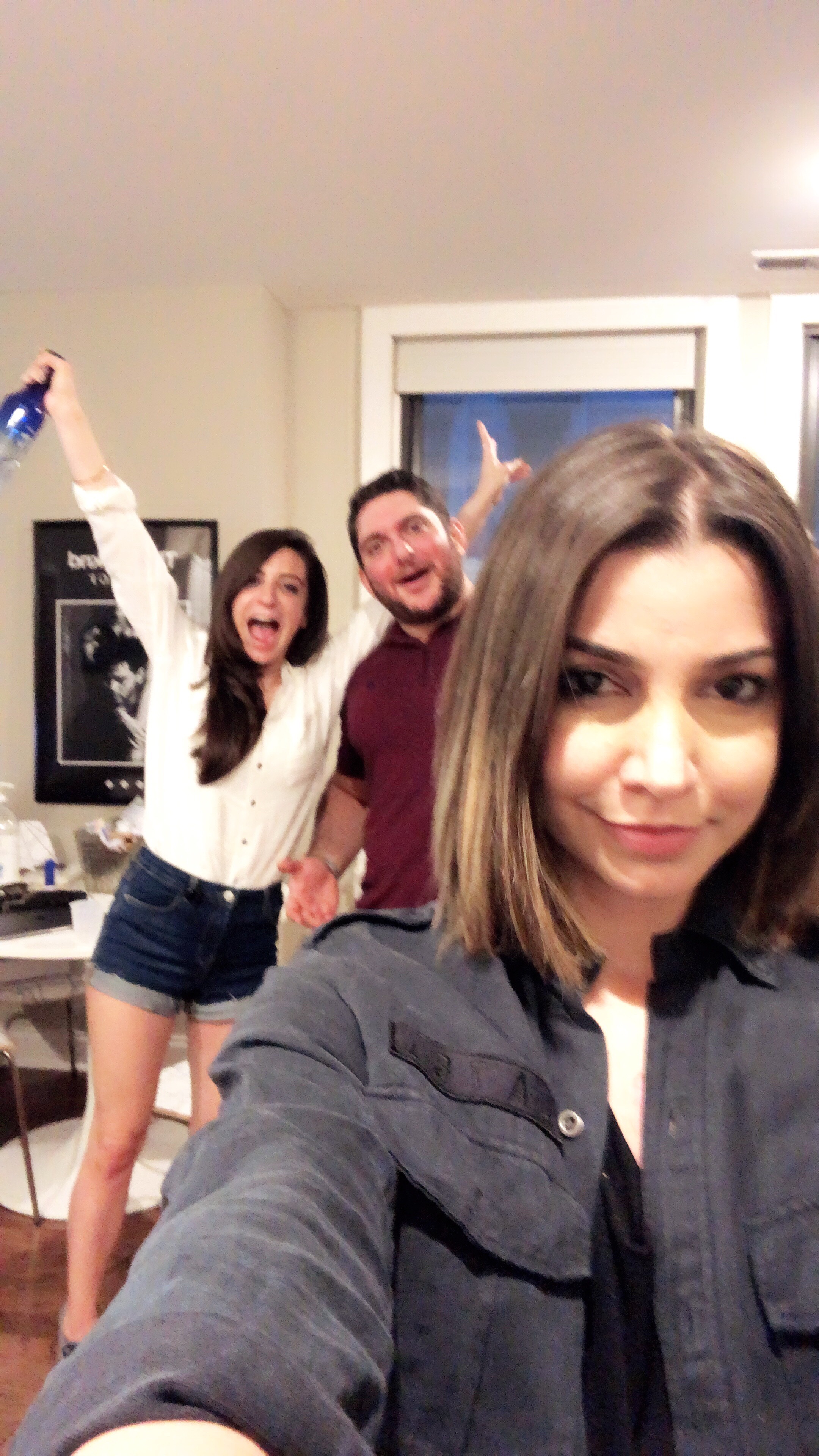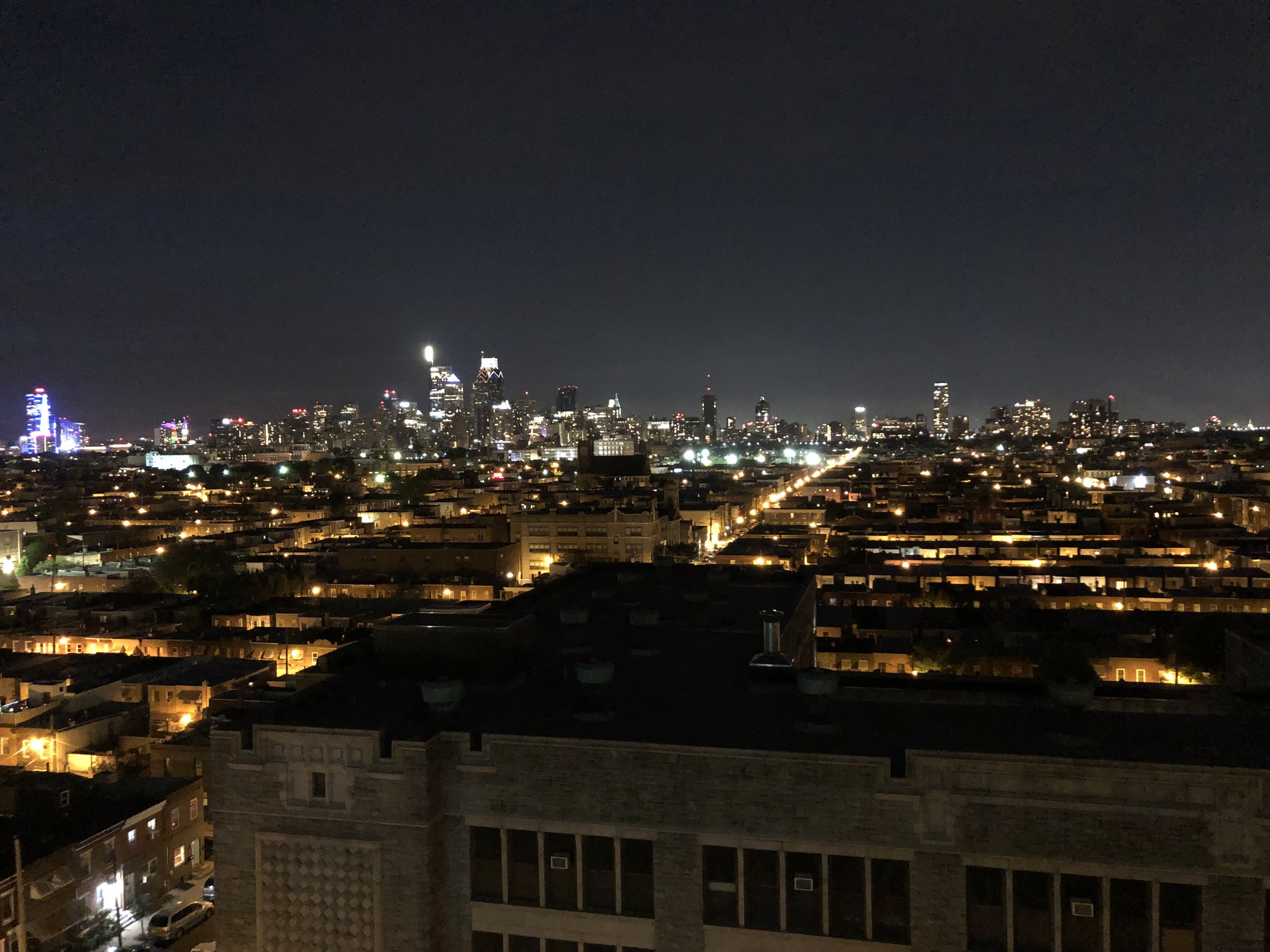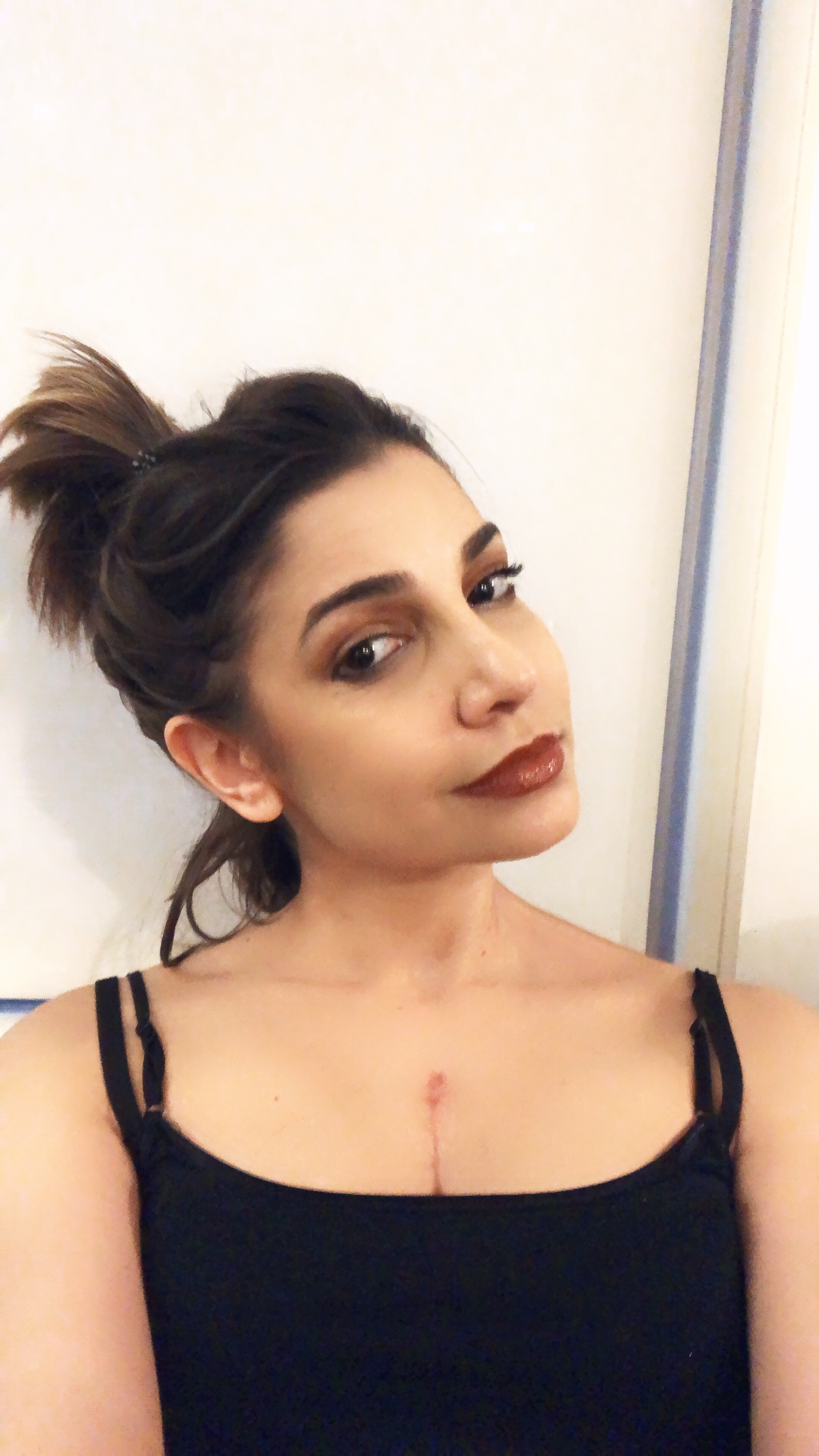One morning, a medical intern came into my room to examine me, before morning rounds (which is when the team discusses each patient and the patient’s care plan for the day). He put his stethoscope on my chest and listened for what seemed like an hour, but was probably more like a minute. He then apologized. “My attending today, he’s going to ask me about murmurs and gallops and he’s very strict about physical exams.” I told him that I was tachycardic, so the murmur was probably difficult to appreciate. “Don’t feel bad, man. You did a great physical exam.”
A few hours later, the Critical Care team walked into my room. The attending asked me a few questions and then proceeded to do The Very Strict Physical Exam.
"She has an S3 gallop. Severe mitral regurgitation. You didn’t hear it? Take a better listen.”
I quickly interjected, and told the attending that many others also didn’t notice it, probably because of my heart rate being so high. The intern had done his best to take care of me all night, and he got a perfectly detailed history on me, too. Everybody chuckled. The intern then nervously put his stethoscope back on my chest while the rest of the team left the room. “Don’t feel defeated. I know exactly how hard it all is, especially after being here all night,” I told him.
“Alin, you know exactly what we go through. And now you know what your patients go through. I don’t know how you’re handling this so well, but you’re an inspiration to all of us.”
An inspiration!? I’m laying on my death bed with a barely functioning heart. I thought I’d become an inspiration in Emergency Medicine or Critical Care, after doing some groundbreaking research on early sepsis biomarkers or perhaps by saving hundreds of people after an unforeseen natural disaster…
I said thank you, and he left the room. He came back with some cookies from the resident lounge, probably something their attending had brought them. That was nice— I guess because it made me feel like a resident again (even the oatmeal cookies the attendings bring us make a hell of a difference during those long shifts). It’s the little things…
A few days later, I had a new intern taking care of me, I told her that I had this S3 gallop from my severe mitral regurgitation, and to make sure to tell the attending that. She appreciated my help.
At that point, my heart wasn’t getting any better. I kept requesting more echocardiograms to see what we could salvage from my heart. Nope, ejection fraction still terrible. Walls still thin. Heart still looks awful.
I knew what this meant. I needed a heart transplant. I knew that this was coming, but it was hard to tell my parents this.
The cardiologists came into my room one day and sat down (they’re ALL here and they’re SITTING DOWN— this was definitely going to be The Transplant Talk, I thought). I told them the situation. “Listen, I know I need a transplant. I know you’re going to talk to me about it. I want to get enlisted as soon as possible so I can get the heart and get out of here. But the hardest part is going to be explaining all of this to my family. Instead of talking to us together, can you please just explain all of this to my parents later in a separate room? They are going to have too many questions. And I just need to be alone after we talk. I’m really sorry.”
I hope my doctors and nurses appreciated my directness (throughout my whole hospitalization, and also my whole life— not everybody appreciates this).
We talked about the heart transplant. My blood type was B+, luckily one of the more common blood types. I would be very high up on the list, considering my circumstances. If it didn’t happen quickly, they were ready to put an emergent balloon pump in (a mechanical device that would help my heart pump, along with the medications). There was no hope in trying home infusion medications— I was too sick to leave the hospital. Things got even more complicated. I was anemic, but couldn’t get a blood transfusion (since I was going to be enlisted for a transplant). My kidney function was slowly worsening. And, remember that whole “afterload” problem? It was getting worse, no matter which medications they tried. I took it all in, and made some dry jokes about how truly ironic this all was.
“Welp, the GOOD thing is that if I ever go to the ER with a heart transplant, I’ll be an obvious admission. My colleagues are going to love my door-to-admit times. And I’ll always get to be in the Intensive Care Unit. Probably even for a both bone fracture!”
I found that the interventional cardiologists & intensivists appreciated my sense of humor more than some of the other specialists.
Finally, the Transplant Team gave me some paperwork to sign, and asked me how I was feeling.
“Can’t go home with a milrinone pump. Yes to heart transplant. I understand the risks and benefits. Let’s do this.” And I signed the papers with confidence. I felt good. I felt like this was a step forward in my recovery— one of the hardest steps, sure, but at least we had a plan. Plus, I wouldn’t be short of breath anymore.
I swear, if you could take one thing away from me, just know that it really is a blessing to be able to breathe.
Everybody was surprised at how I handled the news. I mean, I already knew it was going there, so maybe I had subconsciously prepared myself for The Transplant Talk. But also, I never saw it as bad news. I saw it as good news— another chance at life. Look at how far medicine has come— had this been decades ago, I would’ve died (like my grandfather did, somewhere in Bulgaria, from "a strange heart condition"). But here I was consenting to get another heart. I was given this genetically defected heart that almost killed me, and I still happily used the crap out of it, and now it was time for a better one.
My parents, on the other hand, didn’t handle the news very well. I had tried to prepare them. They were in denial, especially my dad. They came into my room a couple of hours after I signed the papers (thank you, Care Team, for taking the time to explain everything to them for that long). They were both crying.
I’ve never been a parent, but if you are one, I suppose this is hard news to process. I suppose raising your daughter for 30 years— seeing her go through grade school, seeing her stubborn personality come out at an early age, seeing her through her several Spelling Bees, seeing her the first time she drove a car (terribly), and the first time she had her heart broken, seeing her tell you that some day, she’s going to grow up & save lives, seeing her grow into everything she said she’d become ("and more," according to them) …
And then, seeing her in the Intensive Care Unit in critical condition, hooked up to monitors that beeped too much and living on multiple medications that you had never heard of, with doctors talking about shock and heart failure and the fact that she needed an organ transplant, a critical surgical procedure that would take several hours, and that her whole life would change afterwards.
Again, I don’t know what it feels like to be a parent, but I suspect that this was harder for them than it was for me.
Was I a waste of life? Was I a waste of all the love, support, time, money, and resources they had given me for three decades? Was I wasting their time? Should I ask them to leave? This was a strange feeling, but it was something that I had asked myself so many times. I had always been a practical thinker, a realistic optimist, but also a pusher-awayer. That day, feeling like an 8-year-old asking her parents why the sky is blue, I asked them, “Do you feel like I’ve been a waste of your time and resources for the last 30 years?”
They were both shocked by the question.
“You have never and will never be a ‘waste’ for us. Look at how much joy you’ve brought us. How could you even think that?”
“And what if I die before they get me a new heart? Will I have been a waste of resources then?”
Again, they were quiet.
“If you had to die, you would’ve died already,” my mom pointed out.
Then my dad continued, “Having children comes with its struggles, but there’s nothing in the world that makes me happier than my children. Anything you do, everything you do, makes me so proud. Thirty years with you was a blessing, and there are still a hundred years to go,” said my dad.
I think I knew that, but I just needed some good ol’ parental validation. I felt vulnerable. I felt so useless in this stupid bed, and not in control of my stupid, ironic life. I needed them to be my strong, superhero parents who had seen me go through it all for the last 30 years.
And they couldn’t have done it more gracefully.
We were silent for a few minutes. There was some crying, and some hugging. And then I closed my eyes.
Now, I don’t know if the following was attention-seeking behavior, but it always made me feel at ease: When I was a child, I used to pretend to be asleep on my couch sometimes. My mom would kiss me on my forehead, and then my dad would carry me to my bed and tuck me in. They’d both say that they loved me, and then they would shut my bedroom door and tiptoe out.
Now at age 30, in my hospital bed, I pretended to be asleep. My mom walked over to my bed, and tucked me in. I heard her ask my nurse for another blanket— “She might get cold,” she said. She placed a fresh, warm blanket at the foot of my bed. Then, my parents took turns kissing my forehead. They silently stood in my room for a moment, but it seemed like a long time. And then, they both said that they loved me, and quietly shut my sliding door on their way out.
Thank you for continuing to read my posts. Until next time,
